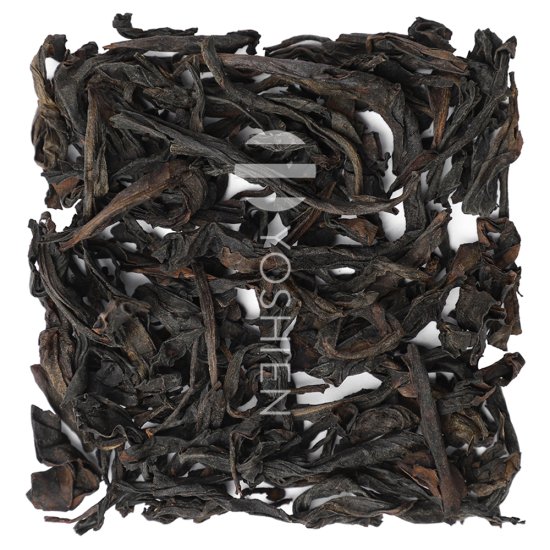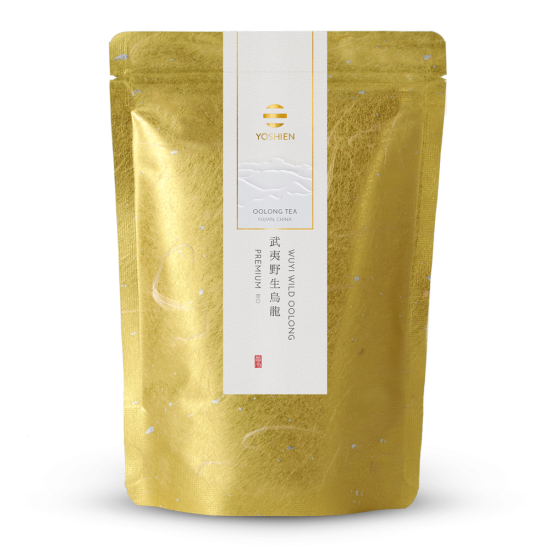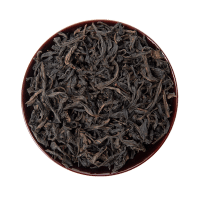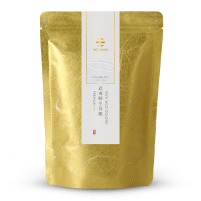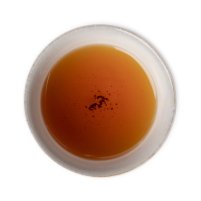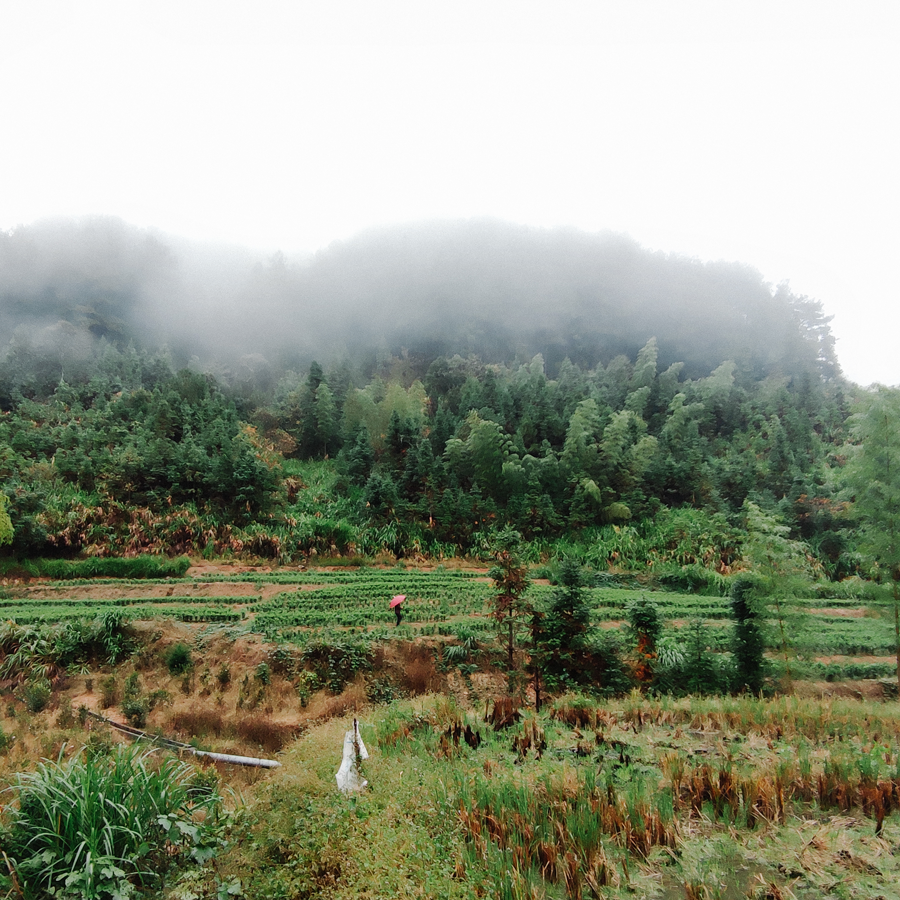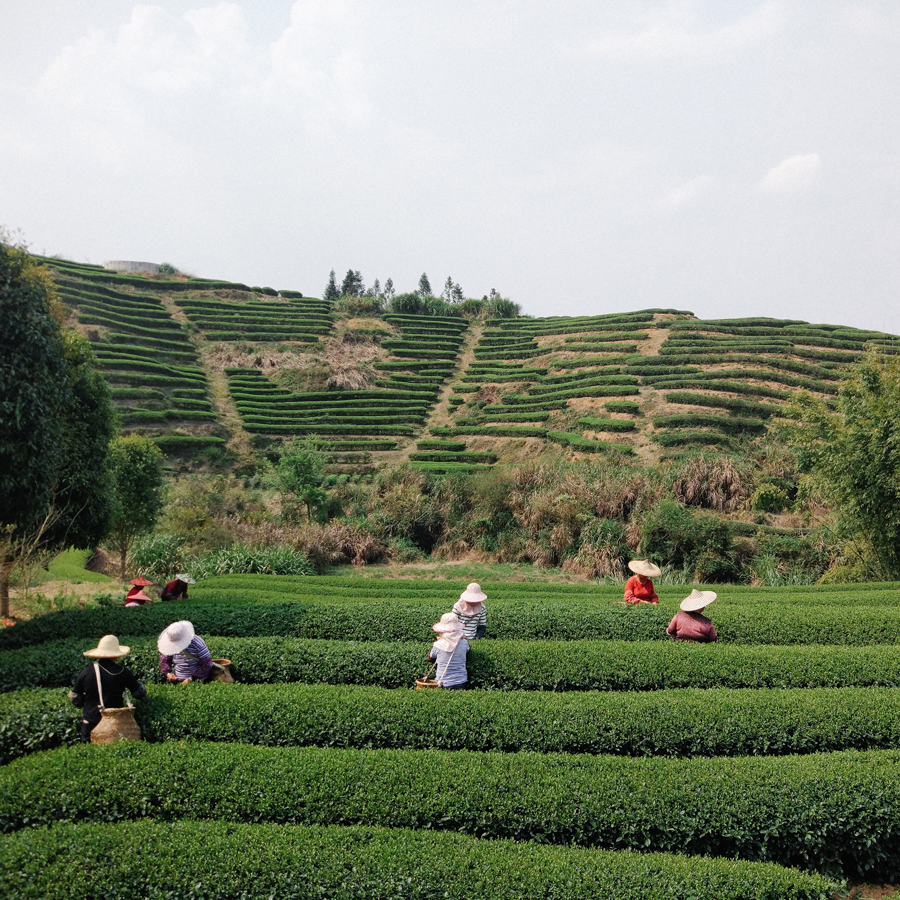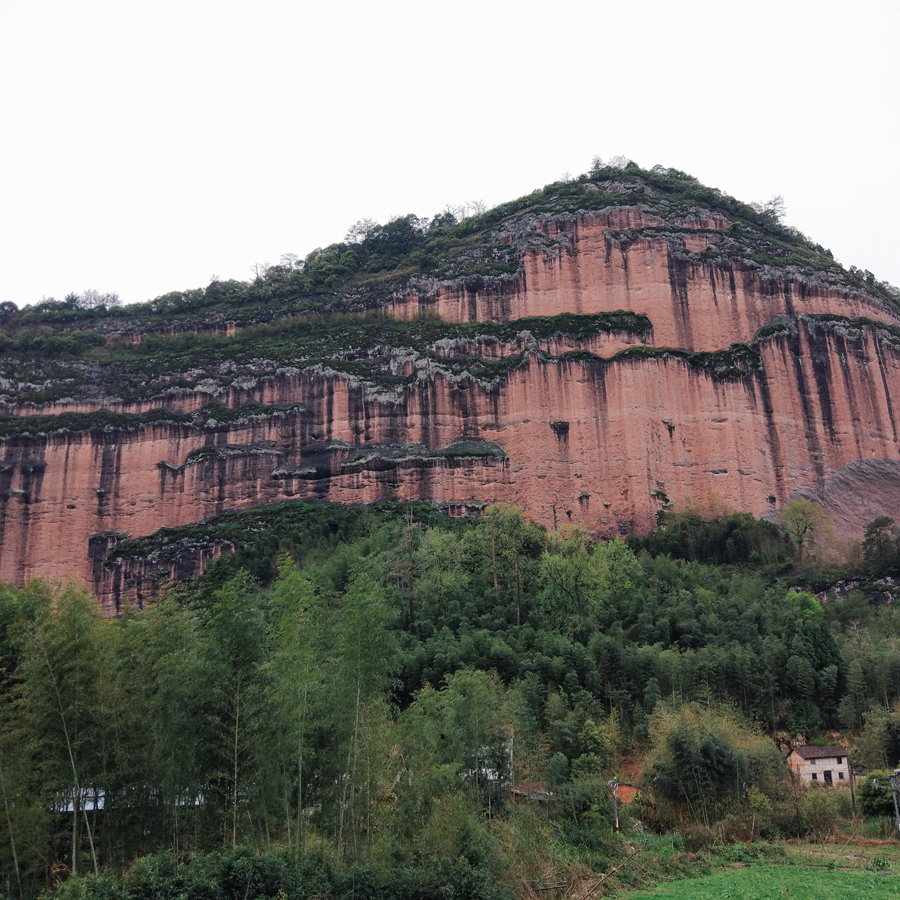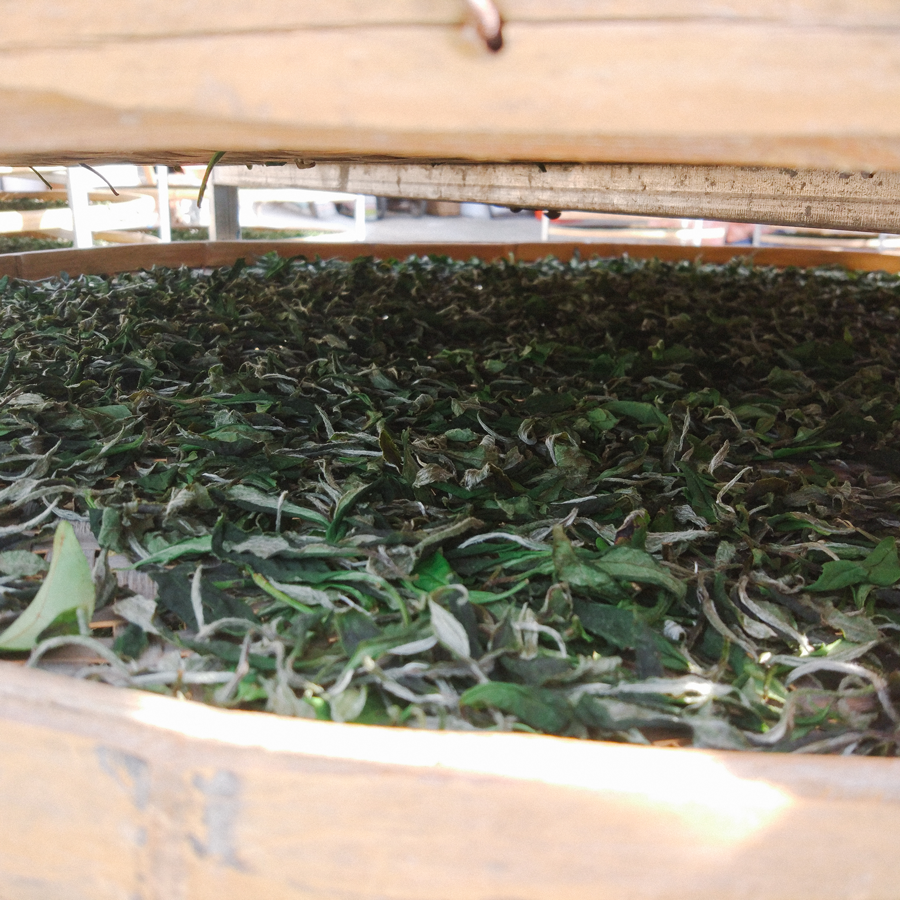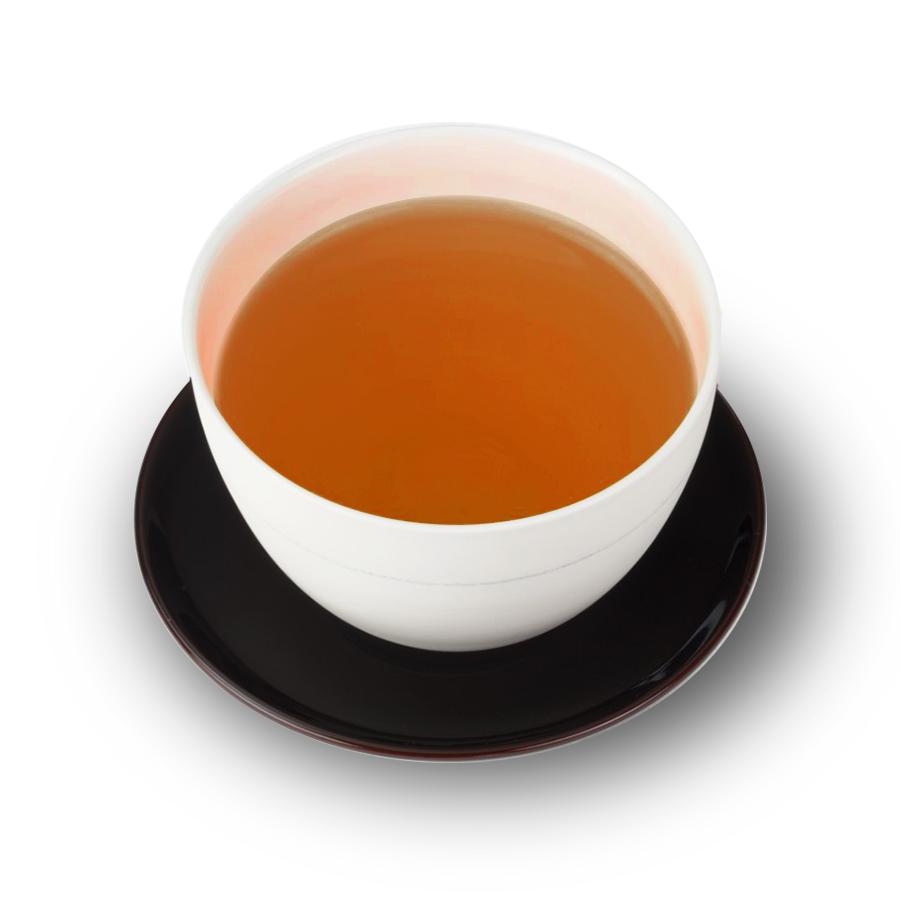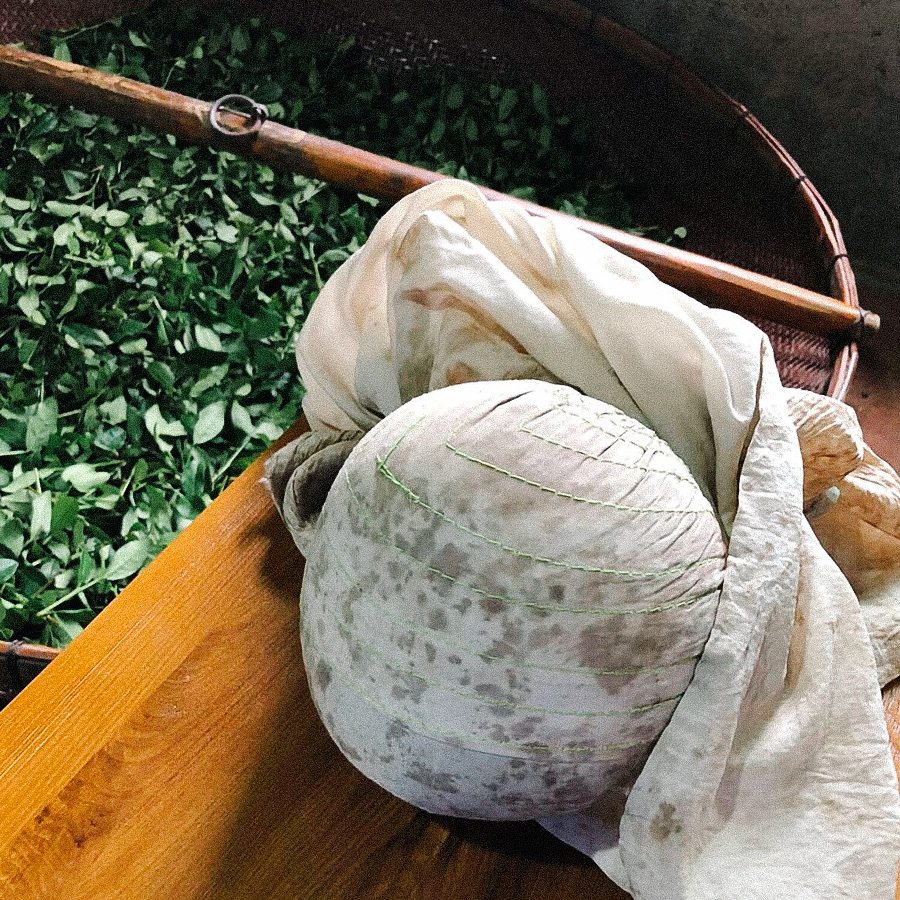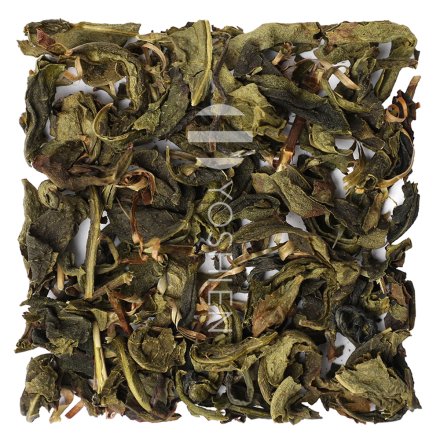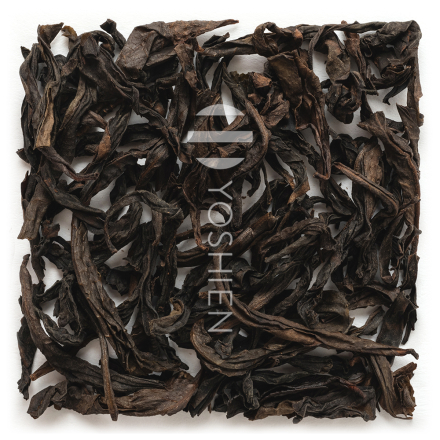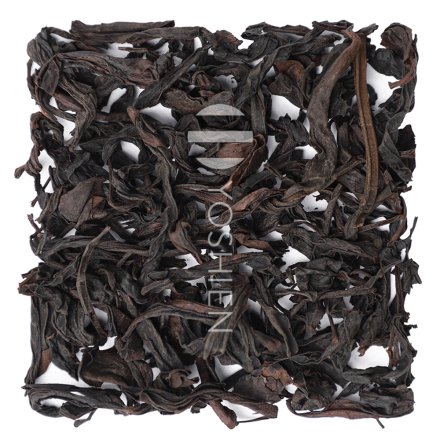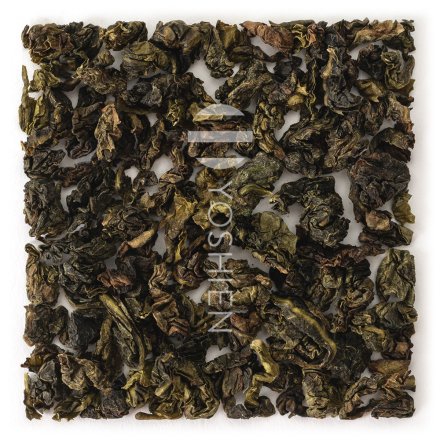What makes this rock tea (Yan Cha) special is the special cultivation method of the long-standing certified organic farm (one of the first in Wuyi). Cultivation is based on the so-called Ye Sheng 野生 (translated "wild") principle, which comes very close to the agricultural concept of permaculture. The tea plants are largely left alone by the tea farmers, and the one-sided use of special cultivars is also avoided. Instead, several different cultivars are used and a natural wild crossbreeding of these with each other is thereby encouraged. This approach results in very different harvests each year with their own unique flavor profiles. Interestingly enough, what runs through the different harvests as a constant is a very clear, natural taste, promoted on the one hand by the special terroir, but not least due to the natural cultivation methods.
The harvest for our tea is done by hand, the bud and the first three leaves are traditionally used. After the harvest, the leaves are withered in the sun and moisture is thereby removed, and oxidation or fermentation starts slightly. The leaves are then taken out of the sun and further withered in a farm building. They are repeatedly moved back and forth. Cell juice escapes through small tears in the tea leaves, especially at the edges, and oxidizes with the oxygen in the air. This process can take up to two days.
In the next stage, the fermentation starts more intensely. Depending on the quantity, the leaves now rest on bamboo plates in the fermentation chamber and develop a reddish-brown color at the tear points.
After reaching the desired degree of fermentation, the fermentation is stopped in an oven with heat (Kill Green). The leaves are then rolled and broken open, the aromatic cell juice spreads over the leaves and hardens. The tea gets its characteristic twisted needle shape through rolling. As a next step, it is gently roasted several times over hardwood charcoal. Each of these roasting cycles lasts eight to twelve hours. Days can pass between these roasts. Finally, after cooling, the leaves are carefully graded according to quality.
Organic Certification






